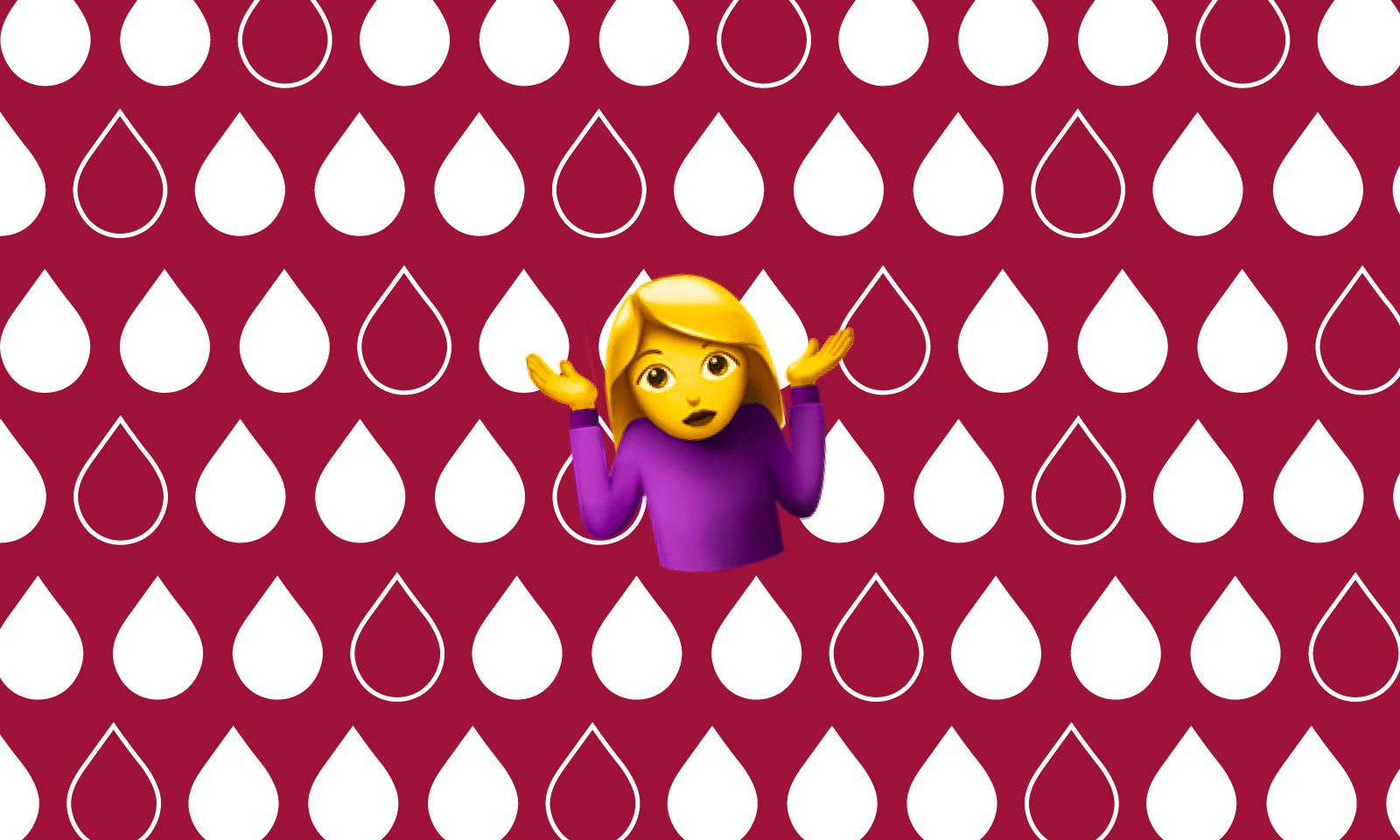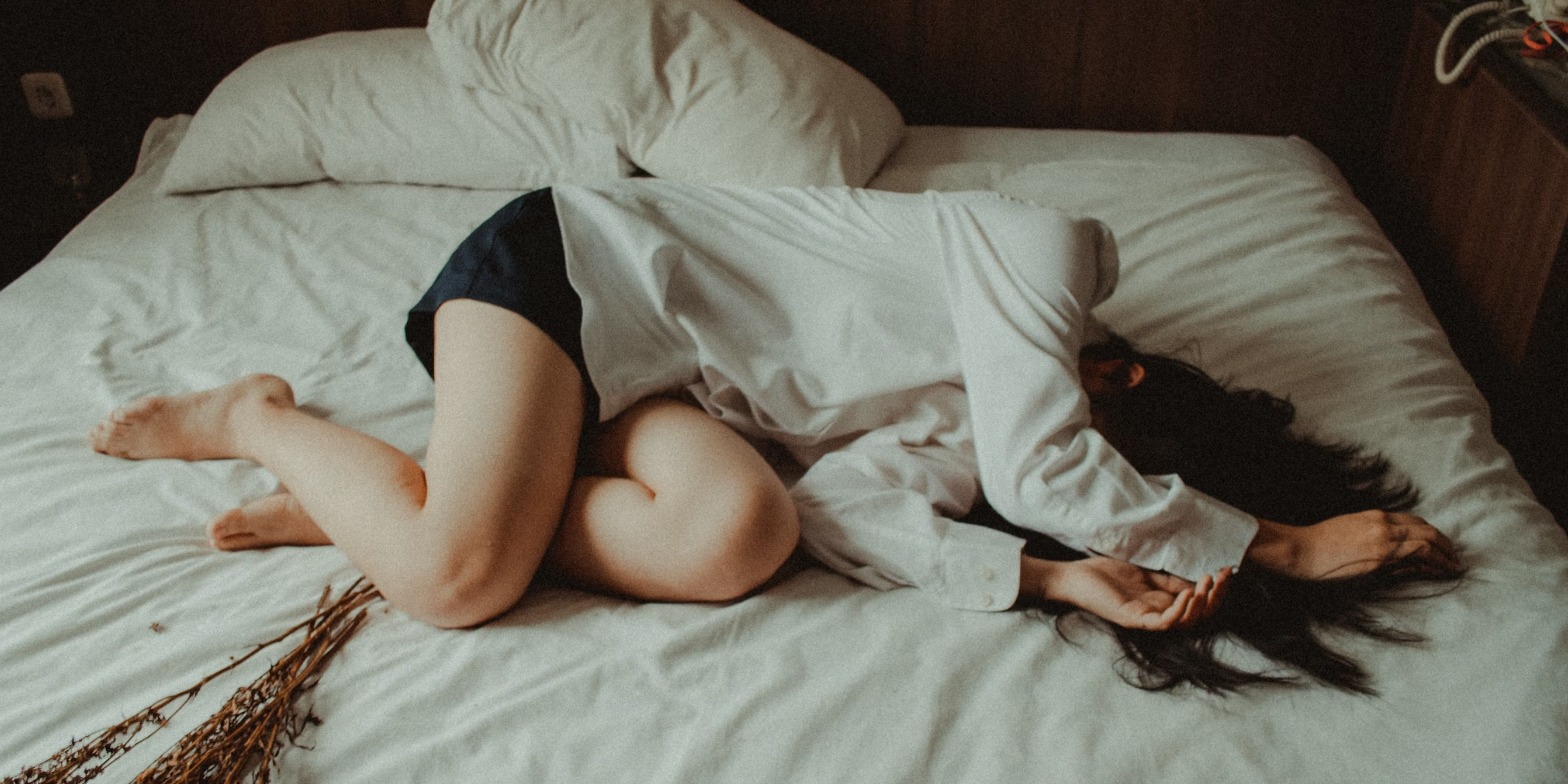Having Irregular Periods as a Teenager: What Does it Mean?

When the signs that a teen or preteen is about to start their period start appearing, it won’t be very long (maybe two years at the most) before they experience the beginning of their first cycle. This is known scientifically as “menarche” (meh-nah-kee), and will typically happen around the age of 12 but can happen for children as young as 8, with periods starting to come soon after. These periods won’t always be regular, though ‒ in fact, you’re more likely to find that periods will be irregular for a number of years before they even out.
But why is that the case? Why is it so common to have irregular periods as a teenager or preteen? What does it mean if you do have irregular periods?
We’ve got the answers written out below, so have a read through and find out more about your period and what certain signs and symptoms could mean for your body and your monthly cycle today.
Irregular periods in the teenage years
It might not often be talked about (and should really be talked about more), but pretty much everyone will have irregular periods in their teenage years. It’s really common because most of our bodies will be going through the same hormonal changes and fluctuations in that time frame. These changes are the most common cause of irregular periods when you’re a teenager, as your body hasn’t yet had time to get used to everything that’s going on.
As you get older, your hormones should settle and your body should start to develop a pattern, until you end up with regular periods at roughly the same time each month. For most of us, this will mean having a cycle between every 21 and 35 days, with experts suggesting an average of around 28 days. The term “average” is kind of subjective, though ‒ what’s normal for one person might be completely unusual for someone else!
What happens if the periods don’t become regular?
Not everyone’s periods will settle down by themselves, for a number of different reasons. These reasons are why you should also be aware of a few other causes of irregular periods, especially if you’re getting other symptoms like nausea or headaches as well.
If you feel comfortable talking about it with relatives who have periods, you might want to first ask them about their own experiences and symptoms, as you may have simply inherited a trait from family members. Knowing this could help you to work out if irregular periods and other symptoms connected to it are something you’ll just move on from over time.
In the event that your family members haven’t had the same experiences, your period hasn’t come regularly for more than two years (or not at all for a year after starting), or you’re still worried about other signs or symptoms you’re having, then you will need to seek medical advice. You should let your doctor or healthcare provider know if you have been experiencing any of the following:
- You were having regular periods but they’re now irregular
- You’ve stopped getting your period
- Your periods have been lasting longer than 7 days
- You’ve been experiencing heavy menstrual bleeding
- Your periods are coming more often than 21 days (or less often than every 45 days if you’d previously had a regular routine)
- You’ve been experiencing severe cramping or abdominal pain
- You’ve had bleeding in between your periods
As a result of explaining your symptoms, your doctor or healthcare provider may:
- Prescribe medicines
- Put you on the Pill or similar oral contraceptives
- Recommend lifestyle changes, such as different diets or exercise routines
What are some other reasons for irregular periods in teenage years?
There are a few other causes of irregular periods that doctors may also recommend tests for, including:
- Polycystic ovary syndrome, or polycystic ovarian syndrome (PCOS), which has symptoms such as excessive hair growth and weight gain
- A hormonal imbalance, which may sometimes be caused by issues with your thyroid
- Extra androgen present in the body, which may cause some of the same symptoms as PCOS
- Pregnancy, as this may be a cause if you are sexually active
If the doctor does decide to test for any of these things, and one of these is found out to be the cause of your irregular periods, they will be able to work with you to decide on the most appropriate action to take.
Home remedies for teenagers with irregular periods
If you’re worried about having an irregular period, or you know someone who is, there are a few things that can be tried out and tested to see if they help:
Wait

As we’ve said previously, your hormones are all over the place when you’re a teenager and your body is still getting used to menstruation. It can take a couple of years or so for this to settle down and for everything to become “routine”, so you may just need to wait it out. There’s a good chance your body will sort everything out by itself!
Take care of your anxiety and stress

Stress is the absolute worst for your hormones, and as your hormones control your menstrual cycle, it has a knock-on effect with your period. Trying to relax might help take care of this. What you decide to do is up to you, of course; curl up with a good book or movie, take a nice walk, listen to your favourite music ‒ the possibilities are endless!
Eat a balanced diet and ditch extremes

Extreme weight loss and strict diets can interrupt your menstrual cycle. It can even stop your body from having a period at all, in some cases (and no, that is not a good thing)!
By keeping to a nutritious, balanced diet, you’re more likely to see your body functioning as it should. This includes having a regular period. Some of the foods you’ll find in a healthy diet have even been proven to be foods that reduce period cramps, so you might even end up helping yourself to feel a bit less bloated and more comfortable!
The most important thing to remember about all of this is that every body is beautiful, regardless of shape or size. Everyone develops differently, and you are not “lesser” for not looking like anyone else. The only person you have to look like is you, and we understand that loving yourself can be hard, but it does get easier the more you practise.
Slow down with the exercise
Exercise and playing sports are both really good for you ‒ in moderation. They keep you fit and healthy, they’re good for your mood, and they can help to boost your confidence when you need it. But you shouldn’t go overboard when doing either, because it can have a negative impact on your endocrine system (the thing in your body that controls hormones). This can lead to your period becoming irregular.
Practise yoga or relaxation techniques

Both of these things can help to control hormone levels in your body (they’re an excellent way to say “goodbye” to stress). As a result, you might see your cycle becoming more regular. A few of the most popular yoga poses are also great for dealing with cramps, and for taking care of the emotional side of getting your period.
Keep track of your cycle

You’ll almost definitely know the difference between spotting and your period days, and if you do experience spotting, your period should follow. By tracking your period when it happens, either on a calendar or by using an app, you should also be able to keep a closer eye on when your full cycle actually begins and ends.
Be prepared for any kind of period in your cycle
Not only can period cycles vary in length and regularity, they also vary a lot in how light or heavy they are. That’s why it’s important to make sure you’re choosing the right products to see you through your more delicate days, and to prepare for any kind of flow. Luckily we’re fully stocked to help with any period you could have, here at fluxies!
Our super-soft, super-absorbent collections of period pants are just right for protecting against stains and leaks from spotting, light or heavy periods, or anything else you might face in your day-to-day. The first moisture-wicking layer in their multi-layer technology even helps to leave you feeling clean and dry, no matter what you’re doing!
Unlike pads or tampons, our undies are totally washable and completely reusable, too, so you’ll never have to worry about buying unnecessary products or running out ever again. So, what are you waiting for? Pick out all your favourite pairs and be prepared for your future cycles for years to come!



